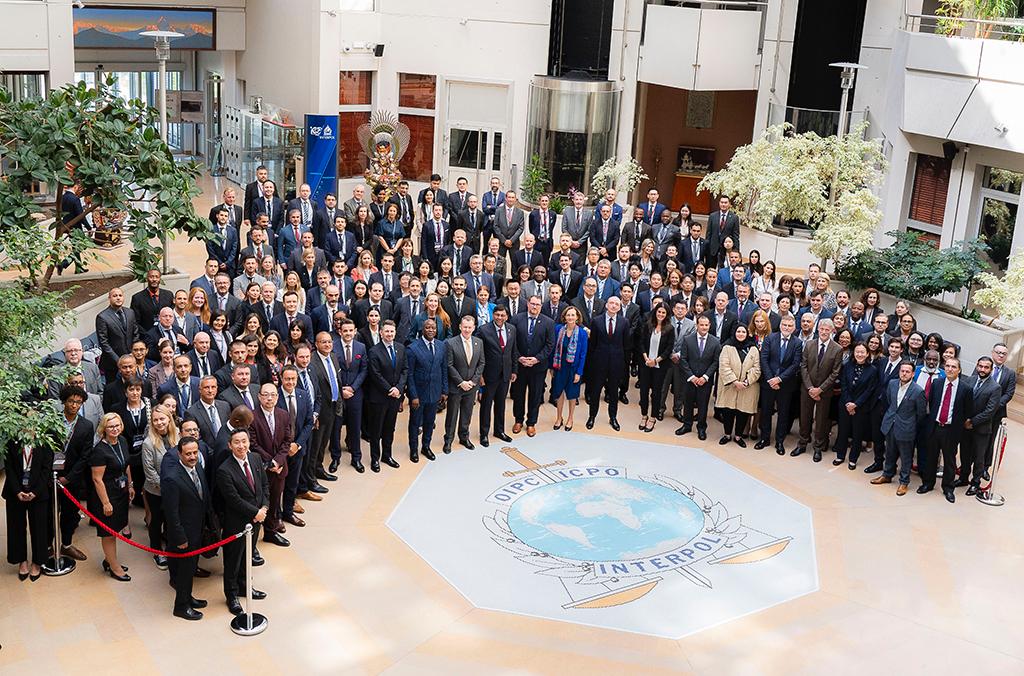Over 200 law enforcement, prosecutors, asset recovery, policy and regulatory experts, from both the public and private sectors, attended the two-day FATF-INTERPOL Roundtable Engagement (FIRE 2) to discuss asset recovery issues and practical solutions to deprive criminals of their illicit assets and contribute to a safer society.
FATF assessments highlighted that globally, countries are only recovering a fraction of proceeds of crime. This allows criminals to benefit from their ill-gotten gains, strengthens and emboldens criminal organisations’ operations and erodes trust in government and the rule of law.
“There needs to be a major mindset and culture shift to focus on asset recovery as a national law enforcement priority. This takes time, but it is essential for countries to start now. Asset recovery is not a secondary or ancillary aspect of investigations and prosecution. It should be a key crime prevention strategy to remove the primary incentive for financial crime – money. If done well, it will prevent and reduce further crime.”, said FATF President T. Raja Kumar during his opening remarks.

FATF President Raja added “Asset recovery prevents crime and must be prioritized by countries across the globe. We need to not just put criminals behind bars but also make sure they do not enjoy the fruits of their crimes. Recovering their million-dollar properties, seizing their yachts and sports cars and prized watches bought with proceeds of crime ensures that crime does not pay”.
“Criminal groups are making billions in illicit profits every year, and their activities should be considered a national security threat. It is only through increased cooperation and aligning of efforts, such as this INTERPOL-FATF event, that we can map a way forward in closing the gaps which criminals exploit every day.” said INTERPOL Secretary General Jürgen Stock. During the two days of active sharing and discussions, experts interacted through thematic panel discussions and real-life case studies covering the end-to-end asset recovery process.
Acknowledging that the global financial crime landscape will continue to evolve, participants discussed how countries can keep pace with key emerging risk areas, in particular cyber-enabled crime, which is often intertwined with other forms of crime. These crimes have grown exponentially in recent years, with a devastating impact on victims. Participants welcomed FATF’s work to update its risk assessment guidance and heard an update of key trends from the ongoing joint project on Illicit Financial Flows from Cyber Enabled Fraud, which is co-led by FATF, INTERPOL, and the Egmont Group.
Participants heard how new technologies have increased the scale, speed and scope of such crimes, and that effective domestic coordination and international cooperation play an important role to successfully trace and recover criminal proceeds. INTERPOL’s Global Rapid Intervention of Payments, or the I-GRIP stop-payment mechanism, facilitates such cooperation by helping authorities trace, intercept and freeze proceeds of crimes across borders. Launched in 2022, I-GRIP has already helped countries intercept more than USD 200 million, largely from cyber-enabled fraud.
Experts heard an update on proposed amendments to the FATF Standards which will ensure that asset recovery is a national strategic and operational priority. Participants welcomed the proposed revisions to FATF Standards which will also strengthen domestic legal frameworks for asset recovery by requiring countries to have a full suite of enhanced asset recovery measures, including non-conviction based confiscation and collaboration with tax authorities, to plug the legal loopholes that prevent timely and effective seizure and confiscation.
Discussions also focused on the need for strong operational structures, and agencies with the necessary skillsets and resources. Countries that are achieving good asset recovery results often have enhanced coordination mechanisms at inter-agency level and public-private collaboration, and established dedicated centralised units to coordinate effective action against financial crime and deprive criminals of the proceeds of crime. This is also reflected in the proposed revisions to the FATF Recommendations, which emphasize the need for adequate resourcing and capabilities and multi-disciplinary skills to respond to the rapidly evolving crime landscape.
Participants discussed the progress in formal and informal co-operation and welcomed FATF’s proposals to strengthen asset recovery networks which are expected to be published in October 2023.
FIRE, a joint initiative by FATF and INTERPOL to strengthen global asset recovery, has enabled an invaluable focus on the strategic and operational changes necessary to ignite asset recovery and take the profit out of crime. It highlighted potential areas of future work, including enhanced international cooperation and effective asset management. The key findings from this event will be discussed at the FATF’s October Plenary to inform policy development within the FATF and help drive effective and impactful action on asset recovery among jurisdictions.
SOURCE: FATF

